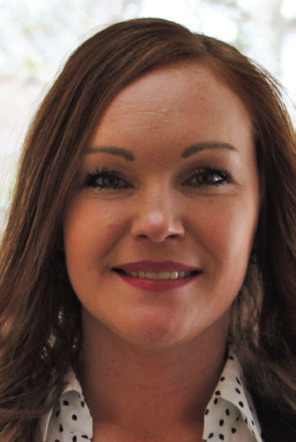Eureka Springs Hospital is no longer on blood divert.
“Eureka Springs Hospital is officially off of blood product divert effective today,” Jodi Edmondson, the hospital’s human resources director and interim CEO, told the Eureka Springs Hospital Commission at the commission’s monthly workshop on June 2.
The hospital has been on blood divert for several weeks after the departure of various lab staff, forcing any blood product acquired to be taken to Berryville for processing.
“Congratulations on the lab,” commission chair Sandy Martin said near the end of the meeting. “That’s huge because it’s fixed for the first time and it’s healthier and we have more people, more highly qualified people running the lab …” The announcement that the hospital is no longer on blood divert was one of a series of updates given during the hour-long workshop, which was primarily focused on reviewing various aspects of the hospital’s budget.
Other updates included the search for a new CEO with Martin telling commissioners that Tiffany Means, who was selected as the commission’s top candidate to fill the role, is expected to be in Eureka Springs later this month to discuss “next steps.”
“We were scheduled to have Tiffany Means, our CEO candidate, come in over Memorial Weekend,” Martin said. “Unfortunately, she got delayed in Los Angeles …. However, the good news is, I talked to her this morning, had a long conversation. She’s flying in the 19th of June. So, we will be setting up a meeting probably in the afternoon of June 20th to meet with her and discuss next steps.”
Martin also reminded commissioners that a scheduled joint workshop with the city council to discuss the hospital finances was scheduled for 2 p.m. Wednesday, June 4.
Bo Ryall, CEO of the Arkansas Hospital Association, was scheduled to join that workshop via Zoom, to discuss hospital finances across the state, Martin said.
“He’s going to … give us updates on state and federal legislation as well as challenges that are facing hospitals in Arkansas, particularly pertaining to [Rural Emergency Hospital] models, and then any observation he has or recommendations for Eureka Springs Hospital,” Martin said. “That’ll be followed by a financial overview, a hospital financial overview that Cynthia [Asbury] and I will do to provide council with background on our financials and explanation on how different hospital financing is than any other model.”
Edmondson also reminded commissioners that the hospital was scheduled to have its “state trauma survey” this week, and staff recently met with the Rural Health Redesign Center “to review our service line assessment.”
“And on June 9th, just a reminder that we’re having our first community education class on Stop the Bleed,” Edmondson said. “And it’s at the hospital starting at 5 p.m.”
SPENDING TALK
A majority of the workshop was spent going over various line items of the hospital’s current budget, which Martin acknowledged was put together in the summer of 2024 “before everything started happening.”
The “everything” that Martin referred to was a series of personnel changes — terminations and resignations — that sparked staff and community uproar and put the commission and hospital in turmoil beginning early November.
“So, we knew it was just a working budget and a goal budget to get things going,” Martin said. “And we had planned to do a mid-year review. And I think with the way things are going, a monthly review in every one of our monthly workshops would be good. There are so many variables that … many of them we have no control over.”
The hospital has a deficit, as of the end of April, of $602,133, Martin said, adding that the amount included expected expenditures and one-time costs for needed equipment and IT upgrades.
“We knew we anticipated at least $400,000 of that because of the Pinnacle [IT] expenditure and a couple of other one-time expenditures that we have also,” Martin said.
Asbury, the hospital’s chief financial officer, said she went through the budget searching for possible cost saving opportunities, later adding that she felt that $550,000 was a safe estimate to predict for average monthly hospital expenses.
“We’ve looked at different methods, any cost-saving measures … whether it be going through our contracts, looking at our contract services, or anything within that, trying to see if there was any way to eliminate any expenditures there,”Asbury said. “I have not really found too much on that within most of our services. … We have looked at positions and again looking at cross-training staff … flexible as we can in areas because some positions are not for fulltime employees.
“So, we continue to evaluate that need and how we can make sure our staffing in our model staffing matrix aligns with the REH needs, continuing getting oversight from the Rural Health Redesign Center as well on that.”
That has led the hospital to examine the comparison of contract employees vs. full-time staff who would be on full benefits, Asbury said.
“I think we do have some areas to improve working to staff actually, nursing and stuff versus contract,” she said. “I mean the expense is about the same, but some of these things can kind of just bring in local people. Within most of our expenses, we have been pared down pretty well. I think within reason, within the past month, we’ve really kind of went through what we feel like at this time are comfortable reducing expenses by.”
Specifically, Asbury was asked if there were benefits of contract staffing instead of fulltime employees.
“You feel contract labor, like contract nursing, is almost as expensive as bringing someone in from the local area,” commissioner Brian Beyler asked.
“There won’t be a significant difference because you’ll be taking on benefits and some of that expenditure within ….,” she said.
Beyler added: “With our contract nursing, as far as scheduling, do we get into a bigger cost there because of the fact that you’re not bringing someone that’s locally here that could come in? Is there any issue there ….?”
That’s where contract labor could get the nod, Asbury said.
“The only positive I want to say is with contract staffing, we have more guarantee of shift coverages,” she said. “We don’t have the call-ins, we don’t have the overtime. We don’t have that kind of thing that puts a strain on our small hospital within, whether it be that we’re asking the nursing admin to cover or another nurse to pick up that call-in shift. “Because our agency staff are pretty great about, I mean they’re scheduled their three days and they cover. … I mean [contract staff] come up with a pretty great skill set from some of these higher-level trauma facilities that is critical and crucial to have in our small hospital.”
When asked if staff expected the need for any major repairs to the facility in the near future, Asbury recommended repaving of the hospital parking lot be put on a to-do list.
“… I think the parking lot predates … they said like the ’80s or something so it’s never really been resurfaced and redone,” Asbury said. “That’s about a $100,000 expenditure to fully get the entire front and back along with digging out and kind of leveling the roots ….”
The commission agreed to put the project on a “wish list” and Martin said she would reach out to Eureka Springs Mayor Butch Berry to see if any parking lot patches could possibly be handled by the city’s public works department.
While the hospital has recently invested in needed “crash carts,” heart monitors, and procedure carts, Asbury said the emergency room physician group has identified more important needs for the facility.
“There is some additional equipment that the ER physician group has identified as needs that they would, I mean, it’s kind of industry standard,” Asbury said. “It’s not a special one or a wish, it’s more of industry-standard equipment.”
The estimated cost of the needed equipment is approximately $75,000, Asbury told commissioners.
In other discussions about upcoming expenditures, commissioners were told it was recently decided to put a hold on hiring a new hospital marketing director.
REVENUE OPTIONS
Getting more patients in the door is one of the keys to more revenue, commissioners agreed, and that starts with continuing to try to improve the hospital’s reputation.
Getting physician Dr. Jacob Roberts and other staff members out in the community sharing the positive happenings at the hospital can help in that regard, Martin said.
“I know Dr. Roberts is anxious to start hitting the streets and I think we’re ready to unleash him and have him make some presentations,” Martin said.
Revenue is improving, Asbury said.
“The last two weeks of April was, I mean we were at baseline or better than what we were compared previously under an REH,” Asbury said. “So, I mean, I do think May, again, it’s right on track and kind of better than where we were. So, I do feel that we’ll continue that. I mean again, we’re [in a tourist town]. So, I do see those peaks in the summer months and we will decrease in the winter months…” In the end, Martin told commissioners that it’s safe to project a loss for 2025.
“I think realistically, we need to project for a loss this year, just because we’ve got so much upfront onetime expenses that, you know, we’ve already got into in half of the year, and I think what we’re all concerned about is what’s going to happen with Medicaid and Medicare,” Martin said.
The budget will continue to be examined at future workshops, Martin said.
“It’s not a bad thing to have a working budget, either, because there are things that I’m sure are going to come up,” she said. “We need to be flexible. I commend the staff for focusing on the right thing, getting the equipment. You guys have, again, I get creamed for saying this, but you’ve done a phenomenal job, and I don’t care what anybody else says. You should know that. And we thank you and appreciate you for doing all that because you’re focusing on the right things and you’re keeping the hospital up.”



